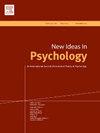论生物成因方法在比较认知中的意义
IF 2.9
3区 心理学
Q2 PSYCHOLOGY, EXPERIMENTAL
引用次数: 0
摘要
比较认知是动物行为的一个跨学科领域,无论研究者承认与否,其本质上都是以不同的基础观点为前提的。人为和生物方法之间的区别是对认知研究中两个主要起点进行分类的有用框架。基于这些分类,比较认知研究显然结合了这两种方法的元素。从比较认知的实证研究可以看出,比较认知倾向于人因方法。虽然我们不提倡放弃人为方法,但拥抱生物方法提供了实质性的优势。这些优势不仅包括实际利益,如提高实证研究生产力,而且还包括显著的智力收益。虽然生物成因方法并不意味着对特定哲学的承诺,但它与具身认知具有高度的亲和力。因此,我们进一步提出,比较认知的生物成因方法可以有效地与生态心理学和行动主义的最新趋势相一致。这种方法上的转变有可能重塑研究问题的表述,并影响推动研究的潜在本体论承诺。本文章由计算机程序翻译,如有差异,请以英文原文为准。
On the significance of biogenic approach in comparative cognition
Comparative cognition is an interdisciplinary field of animal behavior, inherently premised on varying foundational perspectives, whether researchers acknowledge it or not. The distinction between anthropogenic and biogenic approaches serves as a useful framework for categorizing the two primary starting points in cognitive research. Based on these classifications, it becomes evident that comparative cognition research incorporates elements of both approaches. Based on empirical research on comparative cognition, it can be observed that comparative cognition tends to be biased towards the anthropogenic approach. While we do not advocate for abandoning the anthropogenic approach, embracing the biogenic approach offers substantial advantages. These advantages include not only practical benefits such as increased empirical research productivity but also significant intellectual gains. Although the biogenic approach does not imply a commitment to a specific philosophy, it shares a high degree of affinity with embodied cognition. We, thus, further suggest that the biogenic approach to comparative cognition can effectively align with the recent trends in ecological psychology and enactivism. Such a shift in approach has the potential to reshape the formulation of research questions and influence the underlying ontological commitments driving the research.
求助全文
通过发布文献求助,成功后即可免费获取论文全文。
去求助
来源期刊

New Ideas in Psychology
Multiple-
CiteScore
4.80
自引率
3.80%
发文量
37
期刊介绍:
New Ideas in Psychology is a journal for theoretical psychology in its broadest sense. We are looking for new and seminal ideas, from within Psychology and from other fields that have something to bring to Psychology. We welcome presentations and criticisms of theory, of background metaphysics, and of fundamental issues of method, both empirical and conceptual. We put special emphasis on the need for informed discussion of psychological theories to be interdisciplinary. Empirical papers are accepted at New Ideas in Psychology, but only as long as they focus on conceptual issues and are theoretically creative. We are also open to comments or debate, interviews, and book reviews.
 求助内容:
求助内容: 应助结果提醒方式:
应助结果提醒方式:


